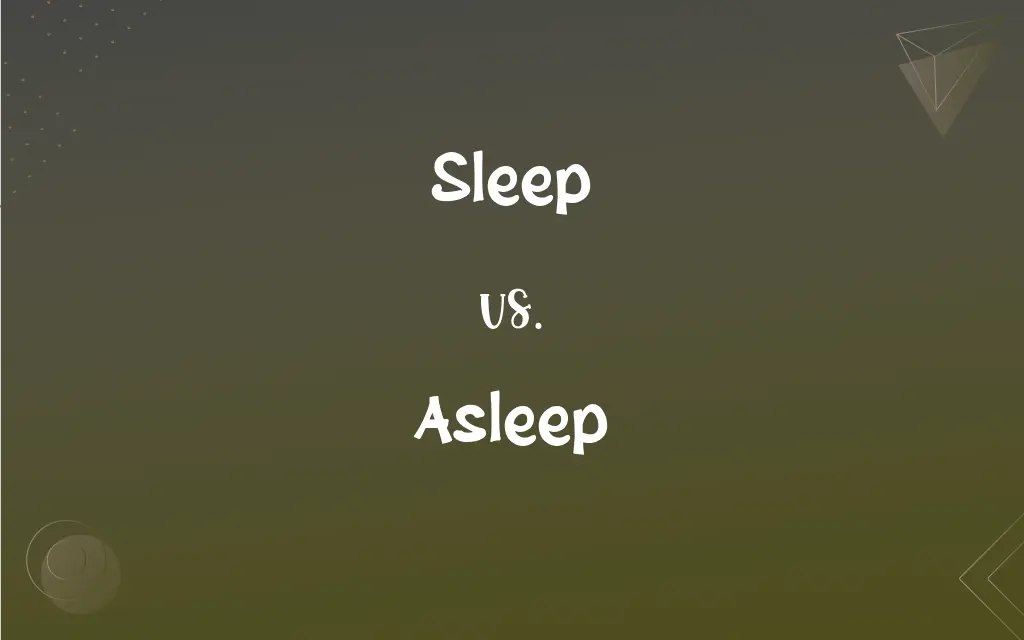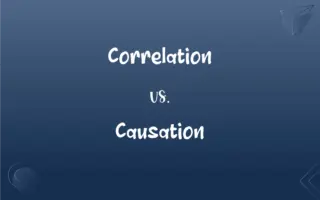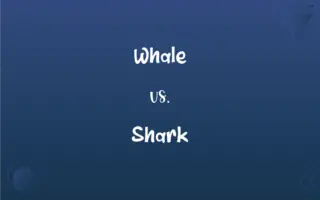Sleep vs. Asleep: What's the Difference?
Edited by Aimie Carlson || By Harlon Moss || Published on November 28, 2023
"Sleep" is a noun (and can also be a verb) referring to the state of resting in which the body is not active and the mind is unconscious, while "asleep" is an adjective describing someone or something that is currently in that state.

Key Differences
The terms "sleep" and "asleep" both refer to a state of rest, but they serve different functions in the English language. "Sleep" can be used both as a noun and a verb. As a noun, it denotes the condition of rest in which the eyes are closed and the body's activity is reduced. As a verb, it refers to the act of entering this state. On the other hand, "asleep" functions as an adjective and is used to describe someone or something that is currently in the state of sleep.
When talking about the activity or the process, one might use "sleep." For example, one might say, "I need more sleep to function well," or "I sleep for eight hours every night." In these sentences, "sleep" describes the act or the condition of rest. However, when describing the state someone is in at a specific moment, "asleep" is used. A person might say, "He is asleep on the couch," indicating that the person is currently in the state of sleep.
Interestingly, while "sleep" can stand alone as a noun or verb, "asleep" requires a subject to modify. One cannot simply say, "asleep in bed," but instead would say, "She is asleep in bed." "Sleep," on the other hand, can stand on its own: "Sleep is essential for health."
"Asleep" can also be used in figurative language, implying that something is dormant or inactive. For instance, one might say, "The volcano has been asleep for centuries." In contrast, "sleep" is generally used in a more literal context, like "I had a deep sleep last night."
Comparison Chart
Part of Speech
Noun (and verb)
Adjective
ADVERTISEMENT
Usage
Refers to the act or condition of rest
Describes someone/something currently in the state of rest
Examples
"I need sleep," "They sleep for 7 hours."
"He is asleep," "The town seems asleep at this hour."
Figurative Use
Less commonly used in a figurative manner
Can be used to describe something dormant or inactive
Standalone Capability
Can stand alone
Requires a subject to modify
Sleep and Asleep Definitions
Sleep
Sleep is a natural state of rest for the body and mind.
Everyone needs sleep to rejuvenate and recover.
ADVERTISEMENT
Asleep
Asleep means being in a state of rest with consciousness suspended.
He fell asleep during the lecture.
Sleep
Sleep refers to the act of resting with closed eyes and reduced consciousness.
I usually sleep soundly throughout the night.
Asleep
Asleep describes someone who is currently sleeping.
The baby is asleep in her crib.
Sleep
Sleep is a periodic suspension of consciousness during which the body's powers are restored.
The baby took a short sleep in the afternoon.
Asleep
Asleep can indicate a lack of awareness or activity.
The entire town was asleep, with not a sound to be heard.
Sleep
Sleep can be a verb meaning to rest in the state of reduced consciousness.
Cats sleep for most of the day.
Asleep
Asleep can be used figuratively to imply numbness or lack of sensation.
After sitting for hours, my leg was asleep.
Sleep
Sleep implies a temporary cessation of activity.
The computer goes to sleep after 30 minutes of inactivity.
Asleep
Asleep refers to being in a dormant or inactive state.
The machinery lay asleep, waiting for the operator.
Sleep
A natural periodic state of rest for the mind and body, in which the eyes usually close and consciousness is completely or partially lost, so that there is a decrease in bodily movement and responsiveness to external stimuli. During sleep the brain in humans and other mammals undergoes a characteristic cycle of brain-wave activity that includes intervals of dreaming.
Asleep
In a state of sleep; sleeping.
Sleep
A period of this form of rest.
Asleep
Inactive; dormant.
FAQs
What's the primary difference between "sleep" and "asleep"?
"Sleep" can be a noun or verb, while "asleep" is an adjective describing a state of rest.
Can I say "I am sleep"?
No, the correct usage is "I am asleep."
Can "sleep" stand on its own in a sentence?
Yes, "sleep" can stand alone as both a noun and verb.
Is "asleep" used to describe the current state of someone?
Yes, "asleep" describes someone currently in the state of sleep.
Do both "sleep" and "asleep" refer to the same resting state?
Yes, but they serve different grammatical functions in sentences.
Can I say "The baby does a sleep"?
No, the correct phrasing is "The baby is asleep" or "The baby sleeps."
Which is correct: "I need a sleep" or "I need some sleep"?
The correct phrase is "I need some sleep."
Is "sleep" ever used in a figurative manner?
It's less common, but "sleep" can be used figuratively, like "sleep of death."
How would I describe a lack of response or awareness?
You can say "He seems asleep to the situation."
How would I describe someone just entering the state of rest?
You'd say "He is falling asleep."
Does "asleep" always mean physically sleeping?
No, it can also mean a lack of sensation, like "My arm is asleep."
What's the verb form of "asleep"?
"Asleep" itself isn't a verb. The verb is "sleep" as in "I sleep at night."
Which word describes a dormant volcano?
You'd say the volcano is "asleep."
Can "asleep" be used without a subject?
No, "asleep" requires a subject, like "He is asleep."
Is "deep in sleep" a correct usage?
Yes, it means someone is sleeping soundly.
Can "asleep" refer to inactivity of machines or systems?
Yes, "asleep" can imply dormancy, as in "The computer is asleep."
Is "asleep" only used for humans?
No, it can be used for animals, objects, and systems indicating inactivity.
Can I use "sleep" to describe an inactive town?
It's more appropriate to say "The town is asleep" for that context.
Can "sleep" mean a break or pause in activity?
Yes, like in the phrase "The computer goes to sleep."
Can I use "sleep" to describe a dormant period for animals?
Yes, like "Bears sleep during winter."
About Author
Written by
Harlon MossHarlon is a seasoned quality moderator and accomplished content writer for Difference Wiki. An alumnus of the prestigious University of California, he earned his degree in Computer Science. Leveraging his academic background, Harlon brings a meticulous and informed perspective to his work, ensuring content accuracy and excellence.
Edited by
Aimie CarlsonAimie Carlson, holding a master's degree in English literature, is a fervent English language enthusiast. She lends her writing talents to Difference Wiki, a prominent website that specializes in comparisons, offering readers insightful analyses that both captivate and inform.






































































